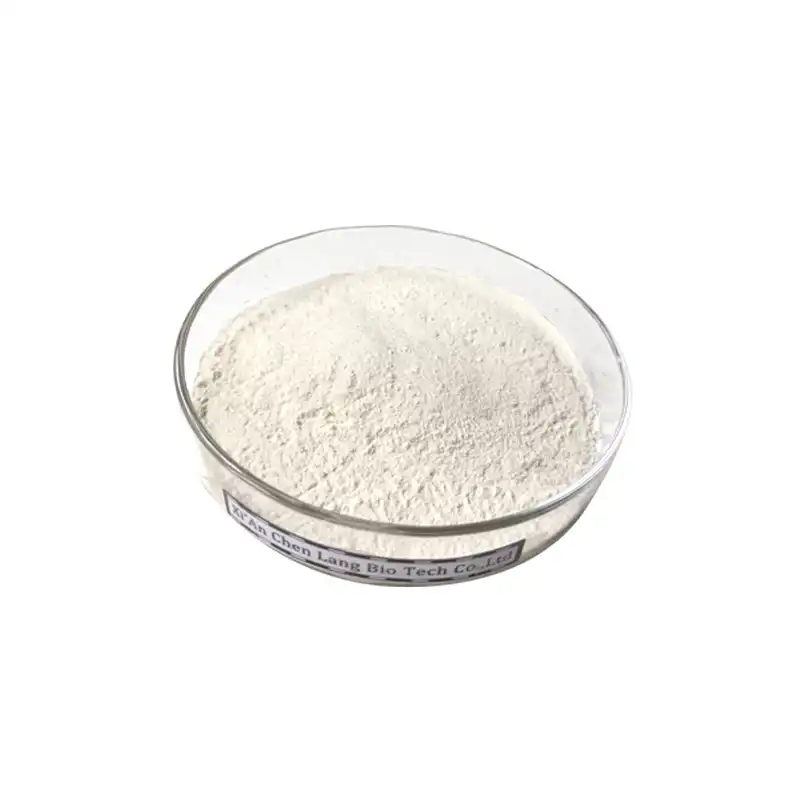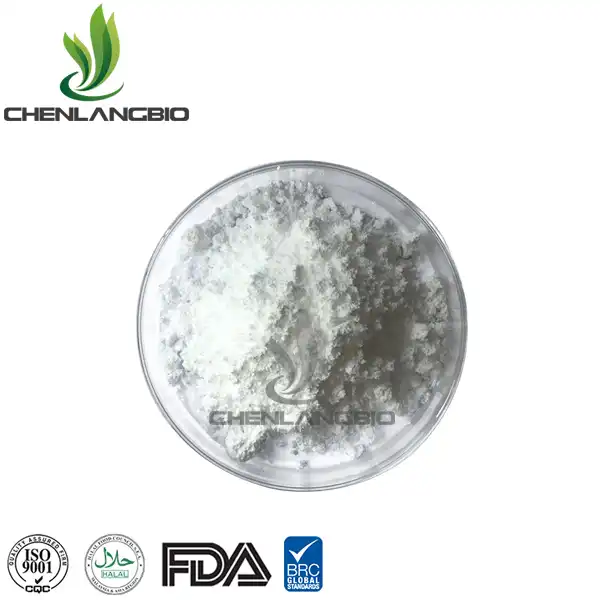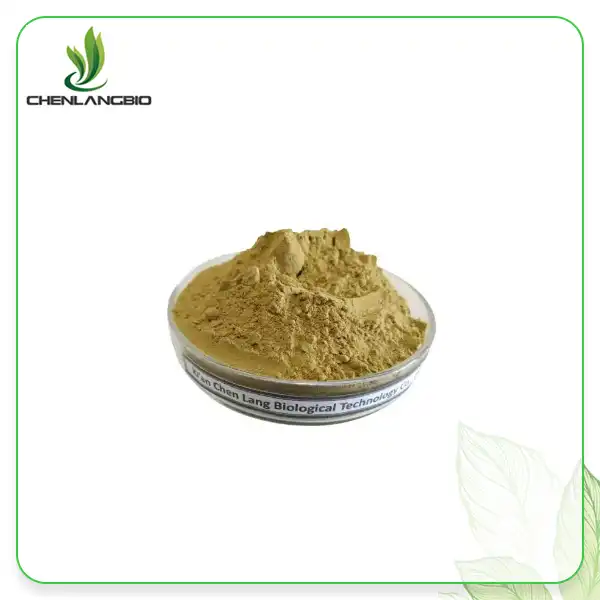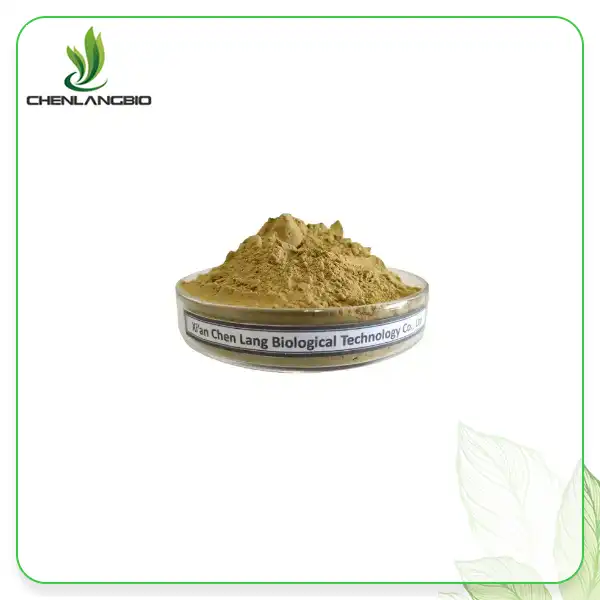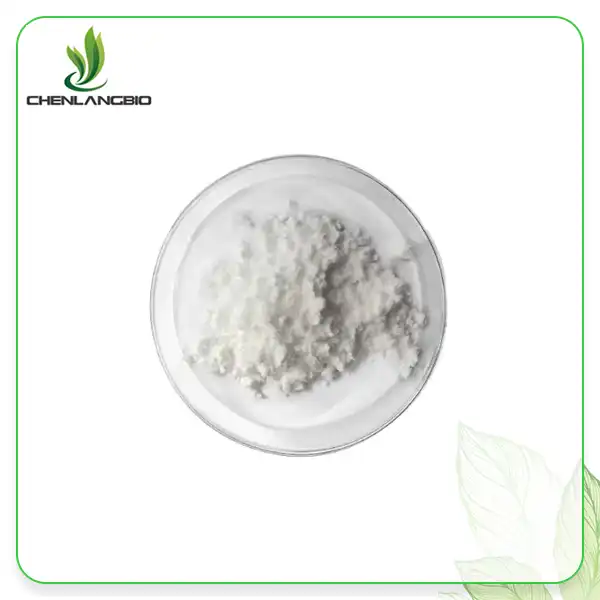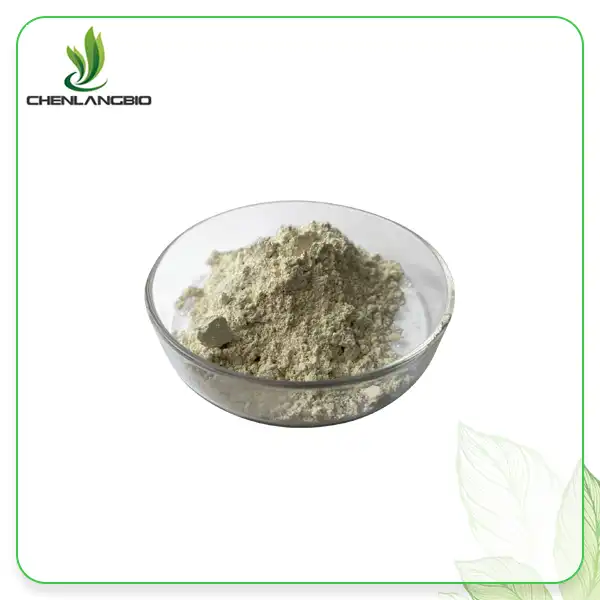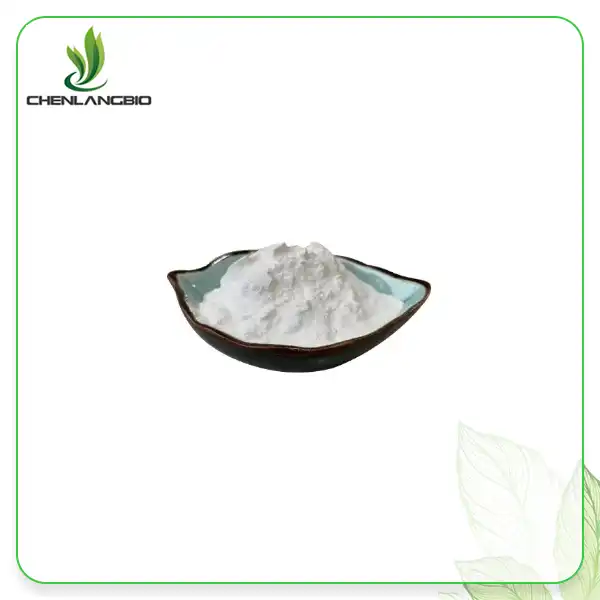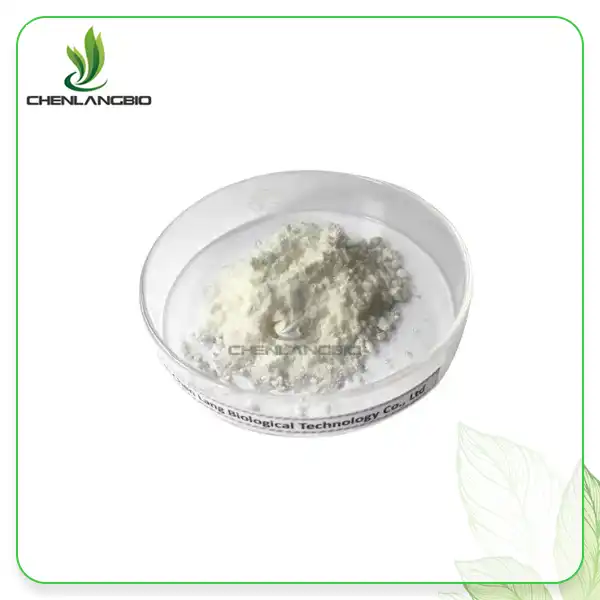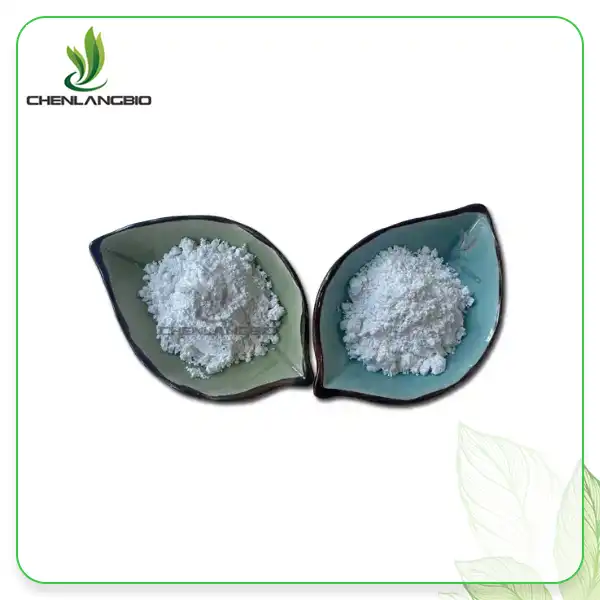Does Chondroitin Sulfate Powder Interact with Other Medications?
2025-07-03 09:39:44
As the popularity of dietary supplements continues to rise, many consumers are turning to natural solutions like chondroitin sulfate powder to support joint health and manage conditions such as osteoarthritis. However, a critical question arises for those who are also taking prescription medications: Does Chondroitin Sulfate Powder interact with other medications? Understanding these potential interactions is crucial for ensuring both safety and efficacy when incorporating this supplement into your health regimen alongside conventional treatments.
Chondroitin Sulfate Powder, derived primarily from animal cartilage, is widely used for its joint-supporting properties. While generally considered safe, it may interact with certain medications, including blood thinners, NSAIDs, and some antibiotics. These interactions can range from mild to potentially significant, affecting medication absorption, metabolism, or creating compounded effects. Before combining Chondroitin Sulfate Powder with prescription medications, it's essential to consult with healthcare professionals to minimize risks and optimize therapeutic outcomes.
Understanding Medication Interactions with Chondroitin Sulfate
Blood Thinners and Anticoagulant Medications
The most significant interaction concern with Chondroitin Sulfate Powder involves anticoagulant medications like warfarin, heparin, and newer direct oral anticoagulants. Chondroitin Sulfate Powder has mild anticoagulant properties itself, which can potentially enhance the effects of prescription blood thinners. This combination may increase the risk of bleeding complications in some individuals. The structural composition of Chondroitin Sulfate Powder, with its repeating units of glucuronic acid and N-acetylgalactosamine (C13H21NO15S), contributes to these anticoagulant effects by influencing certain coagulation pathways. Clinical studies have shown that the glycosaminoglycan (GAG) molecule structure of Chondroitin Sulfate Powder can affect platelet function and potentially amplify the anticoagulant effects of medications. Patients taking warfarin or similar medications should be particularly cautious and monitor their INR (International Normalized Ratio) levels more frequently when initiating, changing doses, or discontinuing Chondroitin Sulfate Powder supplementation. Healthcare providers may need to adjust anticoagulant dosages accordingly to maintain therapeutic effectiveness while preventing excessive bleeding risk.
Non-Steroidal Anti-Inflammatory Drugs (NSAIDs)
Chondroitin sulfate powder is often used by individuals with joint disorders who may also be taking NSAIDs such as ibuprofen, naproxen, or celecoxib. The interaction between these substances presents both potential benefits and concerns. On one hand, Chondroitin Sulfate Powder exhibits mild anti-inflammatory properties that might complement the effects of NSAIDs, potentially allowing for lower NSAID dosages in some cases. The light yellow powder contains natural compounds that may help reduce inflammation through different mechanisms than conventional NSAIDs. However, this combination may also increase the risk of gastrointestinal side effects in susceptible individuals. Chondroitin Sulfate Powder's molecular structure (molecular weight: 479.36800) allows it to interact with certain digestive enzymes and potentially influence the absorption and metabolism of NSAIDs. Some research suggests that long-term co-administration might actually have protective effects on the gastrointestinal tract compared to NSAIDs alone, though more studies are needed to confirm this potential benefit. The purity and quality of Chondroitin Sulfate Powder, such as the 90% concentration offered by Chen Lang Bio Tech, can influence the nature and extent of these interactions.
Antibiotics and Antimicrobial Agents
The interaction between Chondroitin Sulfate Powder and certain antibiotics represents an often overlooked but potentially important consideration for patients. Some tetracycline antibiotics, including doxycycline and minocycline, may have reduced absorption when taken concurrently with Chondroitin Sulfate Powder. This occurs because the chemical structure of Chondroitin Sulfate Powder can bind to these medications in the digestive tract, forming complexes that are less readily absorbed into the bloodstream. To prevent this interaction, it's generally recommended to separate the administration times of Chondroitin Sulfate Powder and these antibiotics by at least 2-3 hours. Additionally, certain fluoroquinolone antibiotics like ciprofloxacin and levofloxacin may have similar interaction profiles. The high-quality Chondroitin Sulfate Powder produced by Chen Lang Bio Tech Co., Ltd. undergoes rigorous testing to ensure purity, but even pharmaceutical-grade supplements should be taken with these timing considerations in mind when combined with antibiotic therapy. For patients requiring both long-term antibiotic treatment and joint support, healthcare providers may need to develop specialized administration schedules to maximize the benefits of both substances.
Factors Affecting Interaction Potential
Dosage and Concentration Considerations
The potential for interactions between chondroitin sulfate powder and medications is significantly influenced by dosage and concentration factors. Higher doses of Chondroitin Sulfate Powder, particularly those exceeding 1200mg daily, may increase the likelihood and severity of interactions with blood thinners and other medications. The concentration of active components in the supplement plays a crucial role as well. Chen Lang Bio Tech's Chondroitin Sulfate Powder with its 90% purity (CAS: 9007-28-7) represents a high-concentration product, which may have different interaction profiles compared to lower-concentration alternatives. The molecular composition and bioavailability of the specific Chondroitin Sulfate preparation affect how it interacts with drug metabolism pathways in the liver. Factors such as the source of the Chondroitin (bovine, porcine, or shark cartilage) can influence its structural characteristics and subsequently its interaction potential. Additionally, individual differences in metabolism, gut permeability, and genetic factors governing drug transporters and metabolizing enzymes contribute to variation in interaction risks between patients. Healthcare providers should consider these dosage and concentration factors when evaluating the safety of combining Chondroitin Sulfate Powder with existing medication regimens, potentially starting with lower doses and gradually increasing while monitoring for any adverse effects or changes in medication efficacy.
Individual Patient Factors and Health Conditions
The interaction between Chondroitin Sulfate Powder and medications can vary significantly based on individual patient characteristics and underlying health conditions. Age-related changes in metabolism and kidney function can alter how both supplements and medications are processed in the body, potentially increasing interaction risks in elderly patients. Those with compromised liver function may experience more pronounced interactions due to altered metabolism of both Chondroitin Sulfate Powder and pharmaceutical agents. Patients with gastrointestinal disorders might have unpredictable absorption patterns that could either diminish or enhance potential interactions. Those with bleeding disorders or who have recently undergone surgery represent a special risk group when combining Chondroitin Sulfate Powder with anticoagulants due to the supplement's mild blood-thinning properties. Individuals with autoimmune conditions may experience complex interactions related to the immunomodulatory effects of certain medications and the potential immunological activities of Chondroitin Sulfate Powder. The presence of multiple comorbidities often necessitates polypharmacy, which increases the complexity of potential interaction networks. Genetic variations in drug-metabolizing enzymes and transporters can dramatically alter how individuals respond to both Chondroitin Sulfate Powder and medications, creating unique interaction profiles that may not be evident from population-level studies. Healthcare providers should conduct thorough patient assessments, considering all these factors when advising on the concurrent use of Chondroitin Sulfate Powder with prescription medications.
Timing and Administration Protocols
The timing of administration represents a critical yet often overlooked factor in managing potential interactions between chondroitin sulfate powder and medications. Taking Chondroitin Sulfate Powder and certain medications at the same time may facilitate direct physical or chemical interactions in the digestive tract, potentially reducing absorption of either substance. Chen Lang Bio Tech's high-quality Chondroitin Sulfate Powder (available in quantities from 1-10kg in foil bags or 25kg paper drums) can be scheduled strategically throughout the day to minimize these interactions. For medications with narrow therapeutic windows, spacing administration times by at least 2-4 hours from Chondroitin Sulfate Powder consumption may help maintain consistent blood levels and therapeutic efficacy. The physical properties of Chondroitin Sulfate Powder, particularly its solubility and binding characteristics, influence how it interacts with other substances in the digestive environment. Some patients may benefit from taking Chondroitin Sulfate Powder with food to reduce potential gastrointestinal irritation, while others might achieve better results with administration on an empty stomach. For those taking multiple medications, developing a comprehensive administration schedule that accounts for potential interactions with Chondroitin Sulfate Powder can be complex but essential. Healthcare providers can assist in creating personalized administration protocols that optimize therapeutic benefits while minimizing interaction risks, taking into account the patient's daily routine, medication requirements, and specific formulation of Chondroitin Sulfate Powder being used.
Maximizing Safety and Efficacy
Consultation with Healthcare Professionals
Prior to incorporating Chondroitin Sulfate Powder into a treatment regimen that includes prescription medications, consultation with qualified healthcare professionals is imperative. Physicians, pharmacists, and dietitians with expertise in supplement-drug interactions can provide personalized guidance based on comprehensive knowledge of a patient's medical history, current medications, and specific health goals. These professionals can access specialized databases and current research on Chondroitin Sulfate Powder interactions that may not be readily available to consumers. During consultations, healthcare providers can evaluate the risk-benefit ratio of adding Chondroitin Sulfate Powder to existing treatment protocols, considering factors such as the severity of joint conditions, medication requirements, and individual risk factors. They can recommend appropriate monitoring parameters and testing schedules to detect any potential interactions early. Chen Lang Bio Tech's Chondroitin Sulfate Powder, with its verified purity and standardized concentration, provides consistent product parameters that healthcare professionals can factor into their recommendations. Some healthcare providers may suggest transitional periods where medication doses are carefully adjusted while introducing Chondroitin Sulfate Powder supplementation. They can also advise on recognizing early warning signs of potential adverse interactions and establish clear communication protocols for reporting concerns. Maintaining ongoing dialogue with healthcare providers allows for adjustments to be made as needed throughout the course of treatment, ensuring that the integration of Chondroitin Sulfate Powder remains safe and beneficial over time.
Monitoring and Documentation Strategies
Implementing robust monitoring and documentation practices is essential when combining Chondroitin Sulfate Powder with medication regimens. Patients should maintain detailed records of their supplement use, including specific product information (such as Chen Lang Bio Tech's 90% pure Chondroitin Sulfate Powder), dosages, administration times, and any observed effects or side effects. Regular laboratory monitoring may be necessary, particularly for patients taking medications with narrow therapeutic windows or those with known interaction potential with Chondroitin Sulfate Powder. For instance, more frequent INR testing is advisable for patients on warfarin, while kidney and liver function tests may be appropriate for those on certain other medications. Tracking joint pain, mobility, and quality of life measures can help determine whether Chondroitin Sulfate Powder is providing the intended benefits while identifying any unexpected changes that might indicate interactions. Some patients find value in using digital health applications or journaling to systematically document their experiences, creating valuable data for healthcare provider consultations. Periodic comprehensive medication reviews, including all supplements, prescription medications, and over-the-counter products, help identify potential interaction patterns that might otherwise go unnoticed. Healthcare providers may recommend specific monitoring parameters based on the patient's medication profile and the particular formulation of Chondroitin Sulfate Powder being used. Monitoring should be more intensive during initiation of Chondroitin Sulfate Powder supplementation or when making dosage changes, then potentially relaxed once stability has been established and no interaction effects observed.
Alternative Formulations and Delivery Methods
The formulation and delivery method of Chondroitin Sulfate Powder can significantly influence its interaction potential with medications. Traditional oral supplements, like those offered by Chen Lang Bio Tech with their 2-3 day delivery timeframe, represent the most common administration route but may have the highest potential for direct interactions with orally administered medications. Topical formulations containing Chondroitin Sulfate combined with other joint-supporting compounds may provide localized benefits while minimizing systemic absorption and potential medication interactions. However, it's important to note that research suggests limited transdermal absorption of Chondroitin Sulfate itself through intact skin. Injectable formulations of Chondroitin Sulfate, available in some clinical settings, bypass the digestive system entirely, potentially reducing certain types of interactions but requiring professional administration. Modified-release or enteric-coated formulations might alter the location and timing of Chondroitin Sulfate absorption in the gastrointestinal tract, potentially minimizing interactions with certain medications. Combination products that include both Chondroitin Sulfate Powder and glucosamine may have different interaction profiles than single-ingredient supplements, as these compounds may work synergistically for joint health but also potentially interact differently with medications. Patients with significant medication interaction concerns might explore alternative joint-supporting supplements with different chemical properties and interaction profiles. Healthcare providers can help determine which formulation and delivery method of Chondroitin Sulfate would be most appropriate based on the patient's medication regimen, health status, and specific joint health needs.
Conclusion
Understanding the potential interactions between chondroitin sulfate powder and medications is crucial for safe and effective supplementation. While most interactions are mild, certain combinations warrant caution and professional oversight. By consulting healthcare providers, implementing proper monitoring, and choosing high-quality products, patients can minimize risks while maximizing joint health benefits.
Ready to experience the benefits of premium Chondroitin Sulfate Powder for your joint health needs? Xi An Chen Lang Bio Tech Co., Ltd. offers pharmaceutical-grade, 90% pure Chondroitin Sulfate Powder manufactured under strict quality control standards in GMP-certified facilities. Our innovative extraction technology ensures maximum potency and purity for optimal results. Contact our expert team today at admin@chenlangbio.com to learn more about our products and how they can support your health and wellness goals.
References
1. Clegg DO, Reda DJ, Harris CL, et al. Glucosamine, chondroitin sulfate, and the two in combination for painful knee osteoarthritis. New England Journal of Medicine. 2006;354(8):795-808.
2. Mazieres B, Hucher M, Zaim M, Garnero P. Effect of chondroitin sulphate in symptomatic knee osteoarthritis: a multicentre, randomised, double-blind, placebo-controlled study. Annals of the Rheumatic Diseases. 2007;66(5):639-645.
3. Du Souich P, García AG, Vergés J, Montell E. Immunomodulatory and anti-inflammatory effects of chondroitin sulphate. Journal of Cellular and Molecular Medicine. 2009;13(8A):1451-1463.
4. Volpi N. Oral bioavailability of chondroitin sulfate (Condrosulf) and its constituents in healthy male volunteers. Osteoarthritis and Cartilage. 2002;10(10):768-777.
5. Rozenfeld V, Crain JL, Callahan AK. Possible augmentation of warfarin effect by glucosamine-chondroitin. American Journal of Health-System Pharmacy. 2004;61(3):306-307.
6. McAlindon TE, LaValley MP, Gulin JP, Felson DT. Glucosamine and chondroitin for treatment of osteoarthritis: a systematic quality assessment and meta-analysis. JAMA. 2000;283(11):1469-1475.
Send Inquiry
Related Industry Knowledge
- Top 7 Uses of Vitamin E Powder in Cosmetics
- Laminaria Japonica Extract for Prebiotic Gut Health?
- How Does Liposomal CoQ10 Compare to Regular CoQ10 Supplements?
- Why Pelargonium Sidoides is Popular in Herbal Medicine?
- Can Cetyl Tranexamate HCL Be Combined with Other Skincare Ingredients?
- Is 4-Butylresorcinol Better Than Hydroquinone
- Is Monobenzone Same As Hydroquinone
- What is Beta Carotene Good For
- Resveratrol Antioxidant
- Apple Polyphenol Extract Weight Loss

